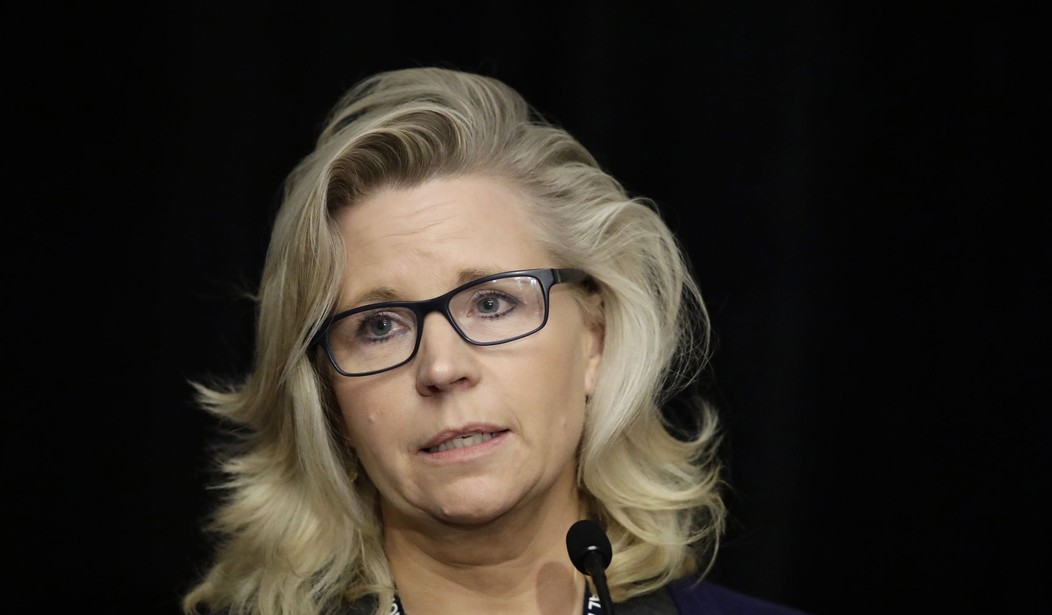The controversies swirling around the vote to impeach Donald Trump by Rep. Liz Cheney (R-Wyo.) — the 4th-ranking Republican in the House — and the controversy over QAnon’s favorite congresswoman, Rep. Marjorie Taylor Greene (R-Ga.), are threatening to tear the party apart at exactly the wrong moment.
The Biden administration is preparing to make its primal thrust to enact its agenda — a $1.9 trillion pandemic stimulus bill that doesn’t do much to fight the pandemic but is chock full of goodies for Democratic constituency groups. And the blizzard of executive orders signed by the new president has largely gone unchallenged. Unity in the face of the advancing enemy is critical and the GOP doesn’t have it.
There’s also the impeachment trial of Donald Trump that Republicans need to prepare for. All in all, this is the absolute worst time for Republicans to be at each other’s throats.
Many Republicans are unhappy with Liz Cheney for voting to impeach a Republican president. Whether you believe her vote was cowardly or courageous is not the point. Cheney’s position as a ranking leader in the House demands minimal loyalty. The other backbench Republicans who voted to impeach will be dealt with by the voters in their districts. But Cheney’s case is different. She had a responsibility to support the party and failed. Stripping her of her leadership position should be the minimum punishment for her.
But Cheney’s ultimate fate has started an unseemly, intraparty row that may have lasting effects.
The strife underscores Republican fissures as the party seeks a path forward two weeks after Trump left office as the only twice-impeached president. House Republicans are effectively deciding whether to prioritize the former president’s norm-shattering behavior and conspiracy theories and retain the loyalty of his voters over more establishment conservative values.
“At the very moment that Joe Biden is lurching to the left is the moment that the Republican Party is lurching out of existence,” GOP pollster Frank Luntz said of the new Democratic president, who is preparing to try muscling a mammoth COVID-19 relief package through the narrowly divided Congress.
It’s unfortunate that Rep. Marjorie Taylor Greene has chosen to make herself the face of Trumpism in the GOP. Her conspiracy theories about school shootings (she’s said they were staged), the 9/11 attacks, and the “pedophiles” of the deep state shows she’s gone off the deep end.
What’s interesting is that Trump never embraced any of those conspiracy theories, but people that do have embraced him.
Minority Leader Kevin McCarthy met with Greene for several hours Tuesday night and he called a meeting of the powerful GOP Steering Committee to determine her fate. They can’t expel her, but they could strip her of all her committee assignments and make life in the House miserable for her.
Giving a conspiracy nut ammunition to claim that a “conspiracy” is out to get her might not be the best idea. But the party has little choice. The bad press Republicans are getting as Democrats look to make QAnon a wholly-owned subsidiary of the Republican Party makes stripping her of her assignments imperative.
The Cheney matter has set House Minority Leader McCarthy against Senate Minority Leader Mitch McConnell.
Both the Greene and Cheney issues have created migraines for McCarthy, a close Trump ally caught between the House Republicans still defending the former president following the Jan. 6 attack on the U.S. Capitol and those warning that only a clean break from the mercurial Trump will save the Republican Party from devouring itself.
McConnell’s extraordinary decision to insert himself into those debates — and to do it so aggressively — not only places him squarely in the latter camp, but also applies enormous pressure on McCarthy to join him there. And McConnell is hardly alone; other top Senate Republican voices are also seeking to shift the party’s focus away from its more fringe elements, represented by Greene, and back to the institutionalist mindset embodied by Cheney.
Maintaining party discipline means punishing both Greene and Cheney. But that won’t satisfy Republicans in the pro- or anti-Trump camps. This argument is a continuation of one that’s been raging in the party for a decade: what kind of party should the Republican Party be? At the moment, the Trump faction is undoubtedly the loudest, but there is plenty of opposition to Trump maintaining control. It remains to be seen what kind of Republican Party will emerge from these controversies.










Join the conversation as a VIP Member